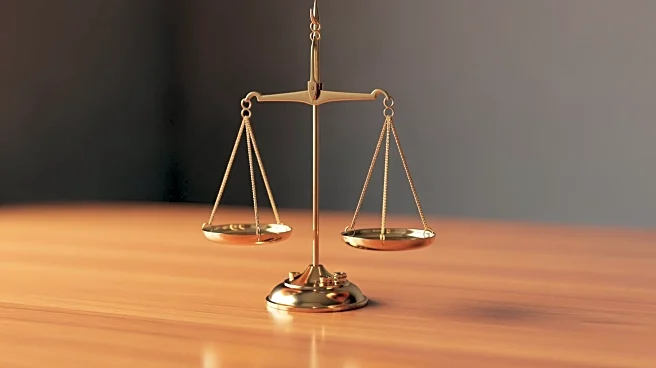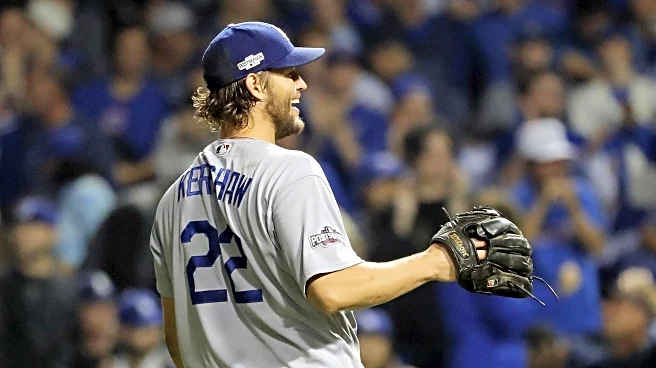What's Happening?
President Donald Trump has granted a pardon to former Major League Baseball star Darryl Strawberry, effectively erasing his past conviction for tax evasion. Strawberry, who played for the New York Mets
and New York Yankees, was a prominent figure in the 1980s and 1990s. His career was marred by legal troubles, including a 1995 felony conviction for failing to report $350,000 in income from autographs and memorabilia sales. Despite his legal issues and struggles with substance abuse, Strawberry has since turned his life around, finding faith in Christianity and establishing a ministry and recovery center. The pardon was confirmed by a senior White House official, who noted Strawberry's efforts in ministry and sobriety over the past decade. Strawberry expressed gratitude for the pardon on social media, sharing a photo with President Trump and acknowledging the closure it brings to his past legal issues.
Why It's Important?
The pardon of Darryl Strawberry by President Trump highlights the intersection of sports, celebrity, and politics. It underscores the potential for redemption and second chances, particularly for public figures who have faced legal and personal challenges. Strawberry's transformation from a troubled athlete to a community leader and minister serves as a narrative of personal growth and societal contribution. The pardon may also reflect President Trump's willingness to use his executive powers to address past convictions of high-profile individuals, potentially influencing public perception of justice and rehabilitation. This action could have implications for how similar cases are viewed in the future, particularly concerning the role of personal transformation in the justice system.
What's Next?
Following the pardon, Darryl Strawberry is likely to continue his work in ministry and recovery, leveraging his story to inspire others facing similar challenges. The pardon may also prompt discussions about the criteria and motivations behind presidential pardons, especially for celebrities and public figures. Observers may scrutinize the implications of such pardons on the justice system and the message it sends about accountability and redemption. Additionally, the pardon could influence how other former athletes and public figures approach their post-career lives, particularly those with legal or personal struggles.
Beyond the Headlines
The pardon of Darryl Strawberry raises questions about the broader societal attitudes towards redemption and the role of public figures in shaping narratives of recovery and transformation. It highlights the potential for sports figures to impact communities beyond their athletic achievements, using their platforms to advocate for change and support others in similar situations. The case also invites reflection on the balance between justice and mercy, particularly in the context of high-profile individuals who have faced public scrutiny and legal consequences.









